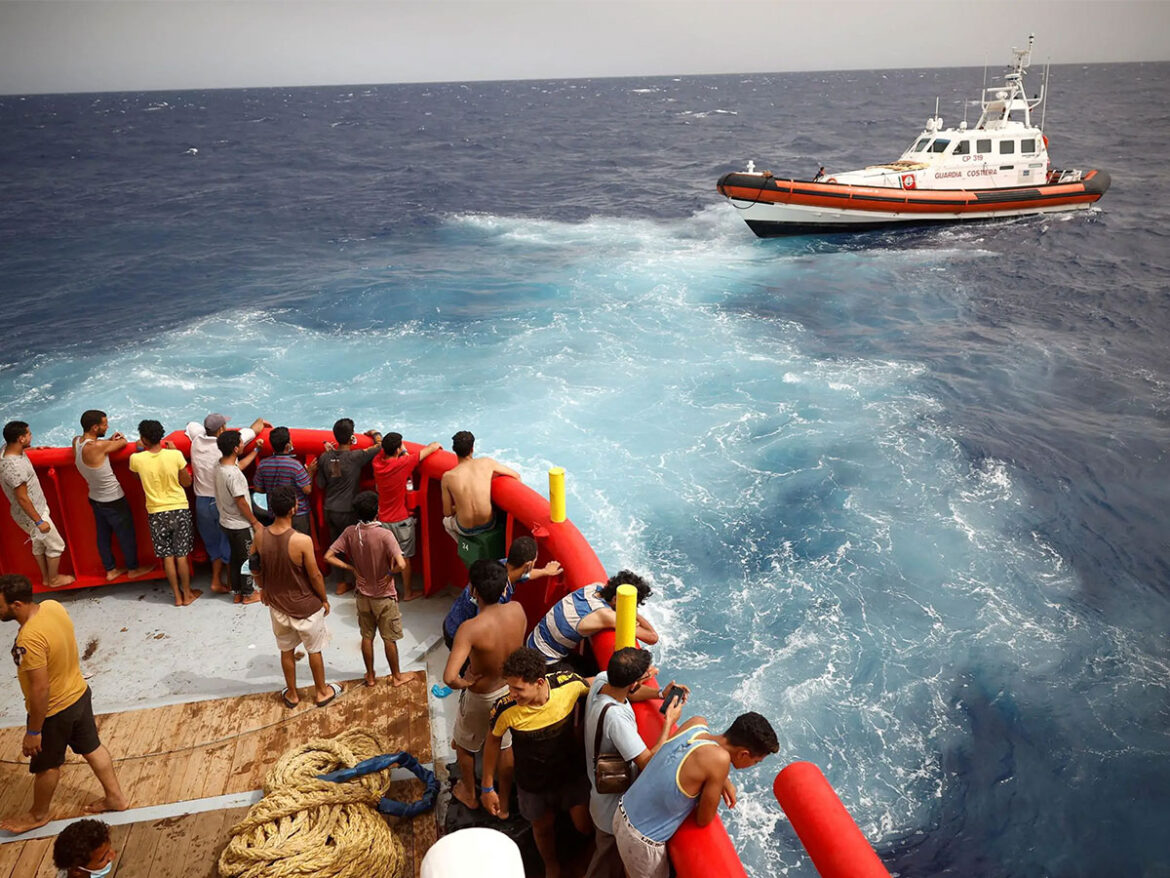In a heartbreaking incident, at least 41 individuals are feared to have lost their lives after a boat capsized amidst turbulent waters off the shores of the Italian island of Lampedusa in the central Mediterranean. The distressing event unfolded as a metal vessel, carrying a total of 45 passengers, including three children, embarked on a perilous journey from Sfax, Tunisia, with the intent of reaching the safety of Italy’s shores.
Survivors, numbering just four, were rescued by a Maltese bulk carrier in the early hours of Wednesday. These survivors were subsequently transferred to an Italian coastguard patrol boat. Their chilling accounts reveal that the boat had started taking in water almost immediately upon entering open waters, leaving them in a precarious situation. The survivors recounted that a massive wave suddenly overwhelmed the vessel, leading to its tragic sinking. Tragically, all passengers, predominantly hailing from sub-Saharan Africa, found themselves stranded in the turbulent sea for hours. According to the survivors’ testimonies, at least 41 individuals were unable to survive the ordeal, succumbing to the treacherous conditions.
This is not the only maritime catastrophe to rock the region recently. In another separate incident, the Italian coastguard recovered the bodies of a woman and a toddler following two shipwrecks that transpired near Lampedusa. Amidst these tragic events, 57 individuals were successfully rescued, but more than 30 others are still missing. Survivors from these incidents indicated that both boats had embarked from Sfax and met their demise due to harsh weather conditions.
The data from the Italian interior ministry has revealed a grim picture of the current migration situation. More than 78,000 individuals have made the perilous journey from North Africa to Italy by boat since the beginning of the year. This number has more than doubled in comparison to the same period last year. Notably, a significant portion of these migrants, 42,719 to be precise, embarked from Tunisia, which has now surpassed Libya as the primary hub for migrant departures. In an attempt to combat irregular migration, the European Union recently inked a €1 billion deal with Tunisia.
Giorgia Meloni, Italy’s prime minister, has been a central figure in this deal and has implemented stringent measures against NGO rescue vessels. However, her far-right government’s policies have come under scrutiny as they face criticism for their handling of the migrant crisis. Recent reports accuse Tunisia of relocating numerous sub-Saharan African migrants to a barren region near the Libya-Tunisia border. The migrants are said to have been abandoned without essential resources such as water, food, or shelter, leading to a dire humanitarian crisis where many are at risk of perishing in the scorching desert heat.
As the international community grapples with these tragic incidents and their underlying causes, urgent attention is required to prevent further loss of life and to address the complex challenges posed by irregular migration in the Mediterranean region.



